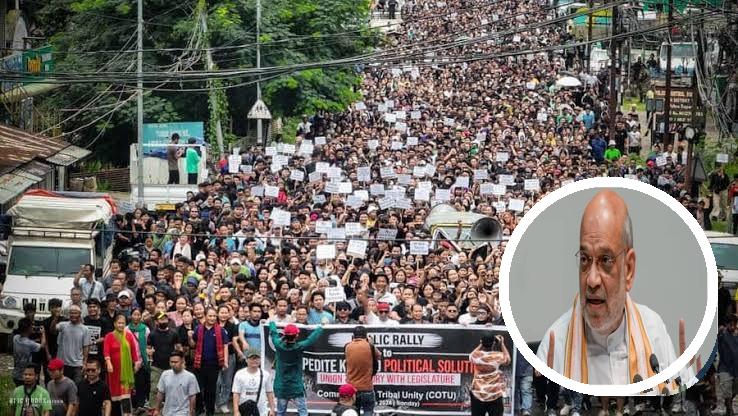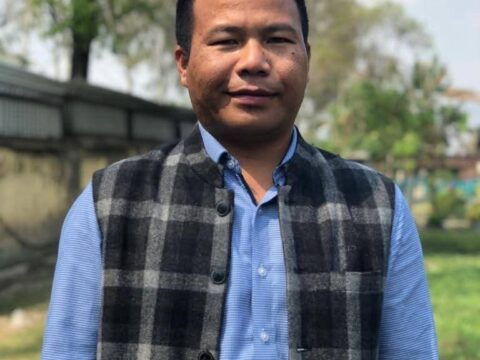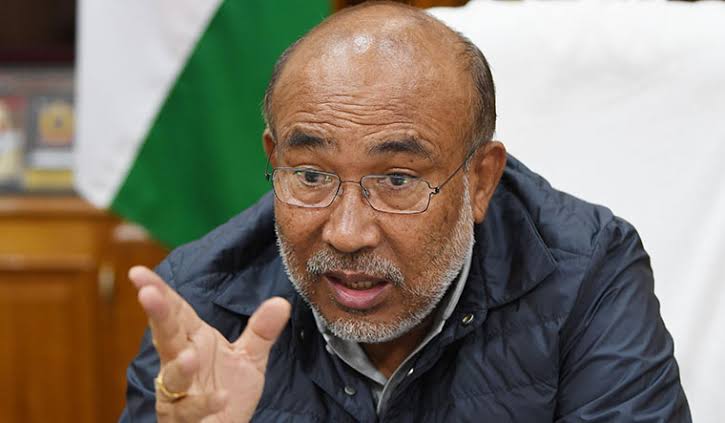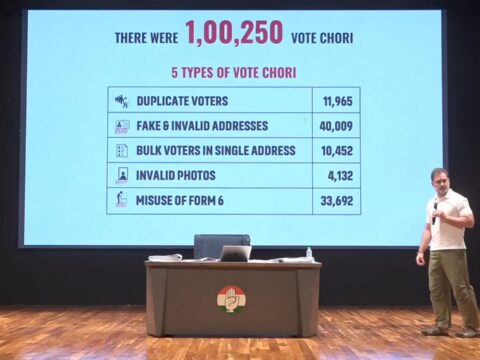B. Gunlien
Union Home Minister Amit Shah’s recent directive for free movement along the National Highway in Manipur is being touted as a peace-building measure. However, in reality, it is a move that exacerbates tensions rather than fostering reconciliation.
Instead of addressing the root causes of the conflict, this directive prioritizes the convenience of the Meitei community while disregarding the security concerns and ongoing suffering of the Kuki-Zo people. Worse, it mirrors Shah’s broader pattern of using brute force to suppress dissent, rather than engaging in meaningful conflict resolution.
The False Narrative of ‘Restricted Movement’
Historically, the national highways in Manipur have always remained open for movement. The claim that restrictions were imposed is misleading. The only people who refrained from crossing through certain areas were the Meiteis, who feared reprisals for their own actions against the Kukis. This fear stems from the brutalities inflicted upon the Kuki community, leaving the perpetrators wary of entering areas where they are not welcome. Instead of forcing a superficial normalization, maintaining the status quo until a political solution is reached would be the wiser course of action.
However, Amit Shah, known for his top-down, force-driven approach, is choosing coercion over consensus. His decision ignores the fundamental reality that peace cannot be imposed—it must be built through justice, accountability, and trust.
A One-Sided Initiative That Benefits Only the Meiteis
The so-called “free movement” directive serves only the interests of the Meiteis, who want unhindered access to travel across Kuki-dominated areas. The central forces can easily escort them through the 15–20 km stretch passing through Kuki territory, ensuring their safe passage to Senapati.
But what about the Kukis? Can any Kuki travel to Imphal for medical emergencies, official work, or even to access the airport? The answer is a resounding no. The reality is that no Kuki feels safe entering Imphal due to the ever-present threat of violence. Will Amit Shah provide security escorts for them as well? His silence on this matter exposes the initiative as a one-sided measure designed to placate the Meiteis while conveniently ignoring the plight of the Kukis.
If Shah were truly interested in fostering peace, he would ensure the safety of all communities, not just one. Instead, his selective intervention further cements the notion that the BJP-led central government is biased in favor of the Meitei-dominated state government, led by N. Biren Singh.
Rubbing Salt into Fresh Wounds
The Kuki-Zo community continues to demand justice for the crimes committed against them. Many families are still mourning the loss of loved ones, displaced individuals remain unable to return home, and the trauma of targeted violence lingers. By pushing for forced reconciliation without addressing these grievances, Amit Shah is only aggravating the situation.
For 22 months, the Kukis have been crying out for justice. Yet, Shah and his government have turned a deaf ear. He had promised to restore normalcy within 15 days when the violence erupted in May 2023, but instead, his inaction allowed Biren Singh’s government to intensify its anti-Kuki pogrom.
With Biren Singh losing the support of his own MLAs before the budget session, a PR exercise was imposed. This move wasn’t driven by any genuine concern for Manipur but was a desperate attempt to prevent the Congress from forming the government after Biren lost his majority.
A Pattern of Force and Repression
Amit Shah’s approach in Manipur is not an isolated case—it fits into his broader strategy of using brute force to suppress dissent. Across India, he has employed coercive tactics to silence opposition:
1. Delhi’s Anti-CAA Protests (2020) – Under Shah’s watch, police brutality was unleashed on peaceful protesters opposing the Citizenship Amendment Act (CAA). The Delhi riots erupted under his leadership, disproportionately targeting the Muslim community.
2. Kashmir’s Clampdown (2019-Present) – Following the abrogation of Article 370, Jammu and Kashmir was placed under an unprecedented lockdown. Internet services were shut down, leaders were detained, and civilians were subjected to human rights violations under the guise of maintaining order.
3. Farmer Protests (2020-2021) – During the year-long farmers’ agitation against the farm laws, Shah’s ministry oversaw police crackdowns, water cannons, tear gas shelling, and barricading of protest sites. Over 700 farmers lost their lives before the government was forced to repeal the laws.
4. Manipur’s Internet Blackout – When violence broke out in Manipur in 2023, the government’s first response was to cut off internet access, effectively silencing the victims and preventing the spread of real-time information. Meanwhile, Biren Singh’s administration continued its targeting of Kukis with impunity.
This pattern of governance—using force instead of dialogue—proves that Amit Shah’s priority is control, not justice. His actions in Manipur are no different. By ignoring the legitimate concerns of the Kukis and enforcing a directive that benefits only the Meiteis, he is fueling resentment rather than fostering harmony.
The Real Path to Peace
If Amit Shah genuinely wishes to restore peace in Manipur, he must first ensure that justice is served. The following steps are crucial:
1. Accountability for Crimes Committed – The perpetrators of violence against the Kuki-Zo people must be brought to justice. Mere political statements will not heal the wounds inflicted over the past two years.
2. Protection for Kuki Citizens – If the government can ensure Meitei safety with central forces, it must do the same for the Kukis. Every Kuki traveling to Imphal must be assured of security.
3. Dialogue and Political Solution – Lasting peace cannot be achieved through brute force. The demands of the Kuki people for self-governance and protection must be addressed through serious political engagement.
4. Addressing the Role of Biren Singh – The chief minister has played a key role in the ongoing conflict. Until he is held accountable for his divisive policies and inaction, any effort at peace will remain a farce.
Amit Shah’s directive is not a solution—it is a political maneuver that disregards justice and fairness. Until the BJP government acknowledges the suffering of the Kuki people and takes genuine steps to address their grievances, Manipur will remain on the brink of further unrest. Forced peace is no peace at all—it is just another ticking time bomb.
(B. Gunlien is an independent journalist. Reach him on X: Gunlien@fakebuster007)







